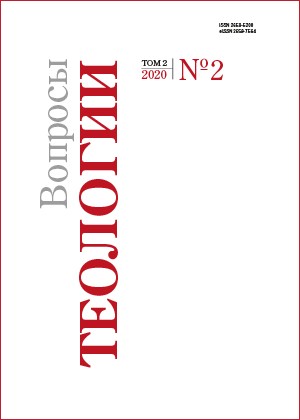Christian tradition and the problem of procreation in the “Structure of theological revolutions” Mark Massa
DOI:
https://doi.org/10.21638/spbu28.2020.204Abstract
This article is devoted to the analysis of the theses described by M. Massa in his book “The structure of theological revolutions”. This book This book is an introduction to the problems of the essence of Christian Tradition, natural law and moral theology, the theology of marriage and its particular aspect related to childbearing. The article analyzes the main thesis of M. Massa on the example of reception by American Catholics of the provisions of the encyclical “Humanae vitae”. The thesis is that in Catholicism there is no single tradition of theology that evolves in the way T. Kuhn wrote about this in relation to science. For introduction into the context of the described M. Mass reception of the encyclical “Himanae vitae” the article describes the history of its occurrence. “Humanae vitae” is compared with papal encyclicals containing conflicting ideas to the main thesis of this text. By the example of several authors, to whom individual paragraphs in the “Structure…” by M. Mass are devoted, this contradiction between the birth of children and their upbringing is described. In the final part of the article, several conclusions are made: M. Massa, adapts T. Kuhn’s theory of scientific revolutions to theology, but does not take into account the specifics of this field of knowledge; the author speaks of the absence of a unified Catholic tradition of theology; since there is a position about paradigms changing in theology that are sensitive to the problems of our time, any anti-church action could find support in church theology. A set of these conclusions allowed the author of the article to conclude with an assumption about what the tradition of Orthodox theology should be, so that it is sensitive to the problems of modernity and at the same time does not lose its identity.
Keywords:
theology, moral theology, American Catholicism, Christian tradition, natural law, marriage, family, childbearing, birth control
Downloads
References
References
Downloads
Published
Issue
Section
License
Articles of "Issues of Theology" are open access distributed under the terms of the License Agreement with Saint Petersburg State University, which permits to the authors unrestricted distribution and self-archiving free of charge.




